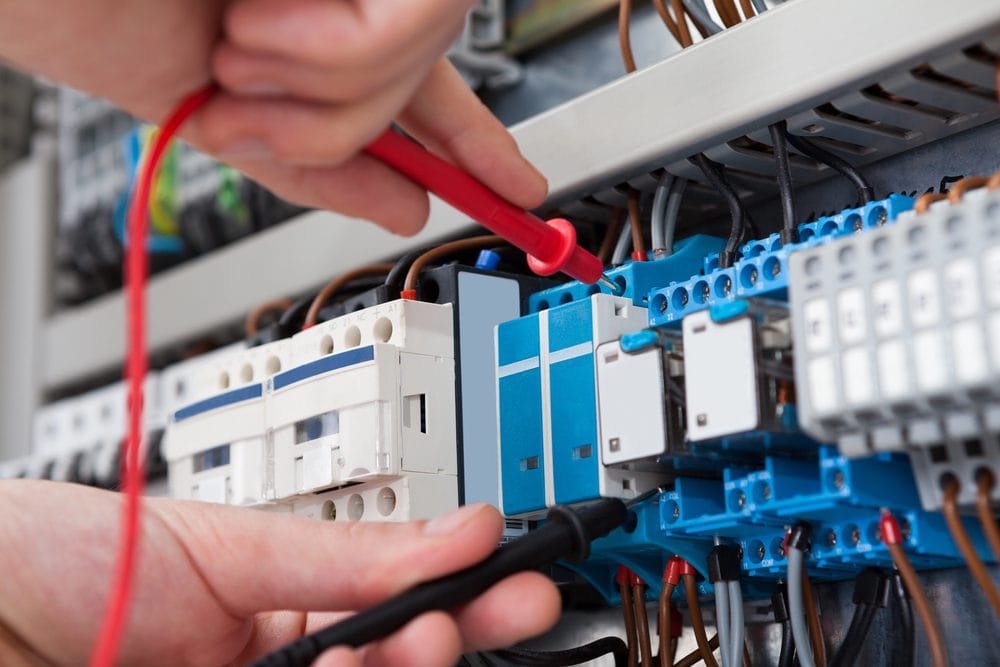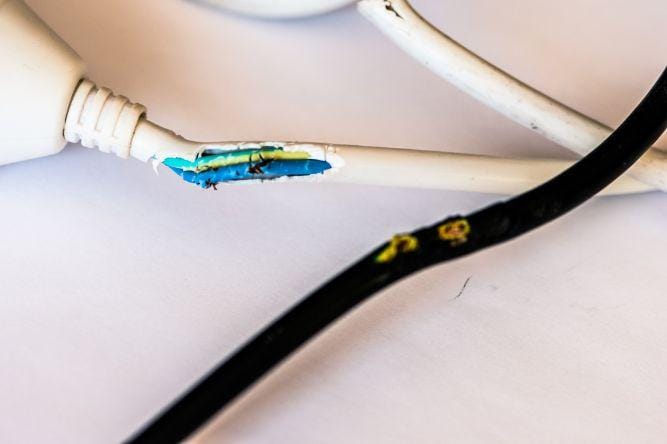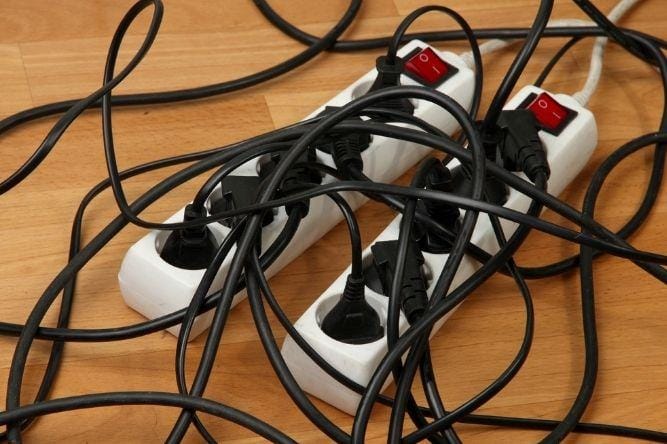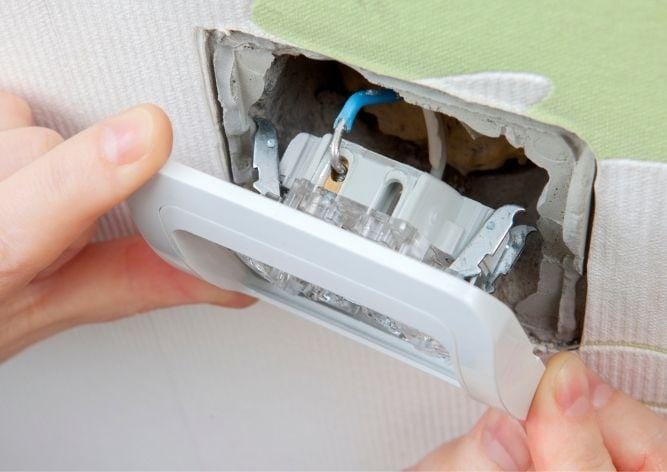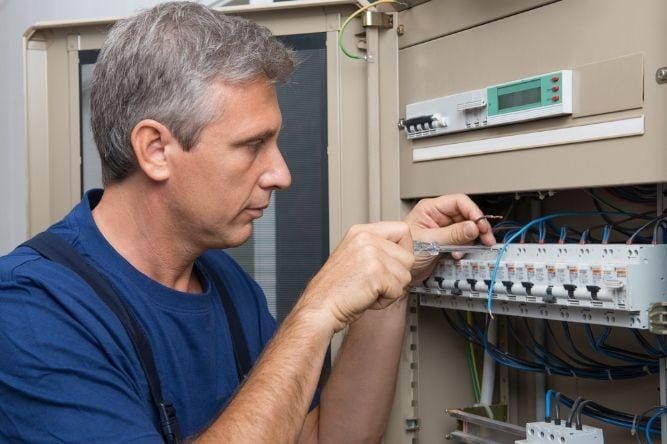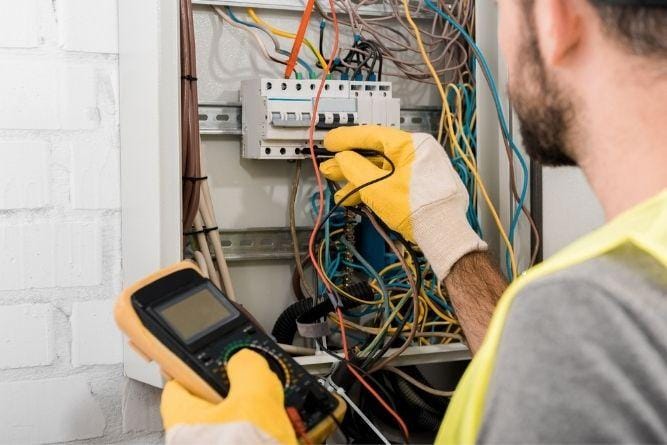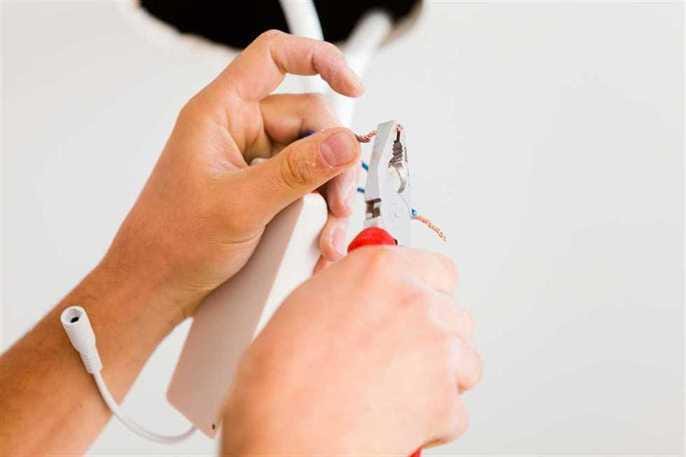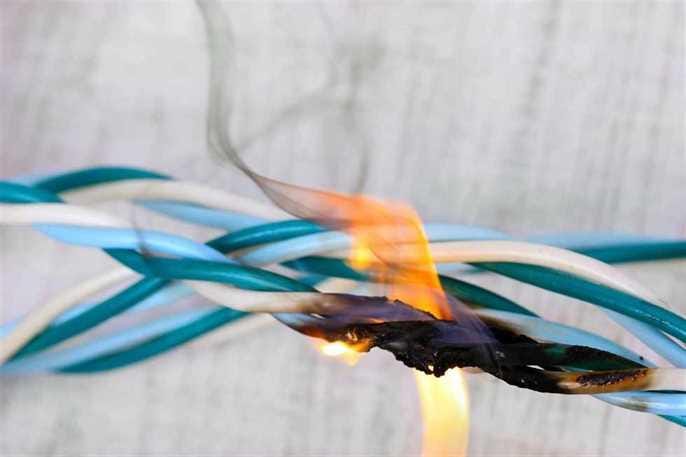Loose Electrical Outlets And Their Dangers
If you’ve wondered, “Are loose outlets dangerous?”, the short answer is yes. A loose electrical outlet is never harmless. In fact, it is a genuine electrical hazard that can lead to arc faults, overheated wires, and even a fire. This is why it should be repaired as soon as you notice the first sign of trouble.
Signs That An Outlet Is Loose
A loose outlet often gives itself away with visible or physical warning signs. Watch for:
- A wobbly outlet or movement inside the wall
- Gaps around the cover plate
- Plugs falling out easily
- A burning smell
- Sparks when plugging or unplugging devices
- Visible burn marks around the electrical outlet
Any of these issues indicates that the outlet is loose, the outlet box may not be secured tightly, or the outlet’s wires have started to shift.
What Causes An Electrical Outlet To Become Loose?
Frequent Plugging & Unplugging Of Cords
Repeated movement inside the receptacle can weaken the contact points and eventually loosen the outlet box or the screws that hold the receptacle in place.
Improper Installation
A poorly aligned electrical box or loose screws can make the outlet unstable from day one.
Aging Components
Old outlet hardware, brittle wires, and weakened clamps contribute to loose electrical outlets in older homes.
Loose Screws
Screws inside the receptacle or face plate can back out over time, leaving the outlet unsecured.
Temperature Changes Or Humidity
Canadian homes experience seasonal shifts that cause materials to expand and contract, gradually loosening electrical sockets and increasing potential hazards.
When an outlet becomes loose, the two loose blades inside the receptacle stop gripping the plug properly. This creates heat, sparks, and the kind of high-energy discharge that leads to arc-fault conditions.
Dangers Of A Loose Outlet
A loose electrical outlet affects more than the wall it sits in; it threatens the entire electrical system in your residential or commercial property. Key risks include:
Fire Hazard
A loose outlet can cause electricity to arc. When electricity jumps between connection points, the heat can ignite surrounding material inside the wall.
Electrical Shock Hazard
Any shifting inside the outlet exposes you to electric shock, particularly when plugging in devices.
Device Damage
Loose contact points cause inconsistent power. Sensitive electronic devices can fail or suffer internal damage as a result.
Overheating Wires
A loose outlet increases resistance, which causes excess heat. Overheating wires behind the wall become a hidden danger that may not be noticed until it’s too late.
What Should Be Done About A Loose Electrical Outlet?
Fixing a loose outlet requires more than tightening a screw. The safest solution is to call a professional electrician who can inspect the outlet box, wiring, and receptacle. A licensed electrician will:
- Cut power at the circuit breaker
- Inspect the electrical box for damage
- Re-secure or replace the receptacle
- Ensure all screws, contact points, and wires are fastened correctly
- Install a new outlet if the old outlet is beyond repair
DIY fixes or installing shims without proper knowledge can create additional electrical problems or increase the risk of fire.
Preventing Loose Electrical Outlets In The Future
A few simple habits help reduce wear and tear:
- Use caution when plugging and unplugging devices to avoid stressing the receptacle.
- Schedule regular inspections of outlets and wiring, particularly in older homes.
- Book periodic professional electrical check-ups to ensure safety and catch potential hazards early.
Staying ahead of issues keeps your electrical sockets, outlet boxes, and wiring in better condition long-term.
Final Thoughts
Loose outlets are dangerous, but they are easy to handle when addressed promptly. If you notice sparks, a wobbly outlet, or plugs that fall out, treat it as a potential fire hazard and get help right away. Powertec Electric’s licensed electricians in Winnipeg can assess, repair, or replace any loose electrical outlet to ensure safety in your home or business.
